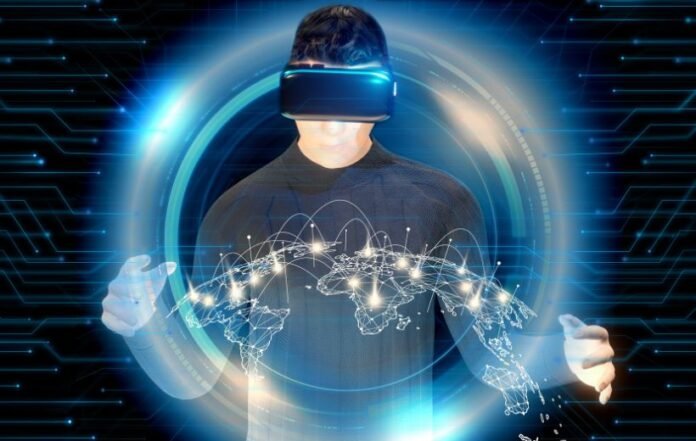Understanding the Modern Concept of Play
In the digital era, EGamer communities and practices are reshaping the meaning of play itself. Traditionally, play was associated with childhood activities, physical sports, and forms of recreation intended for relaxation and fun. However, the 21st century has expanded the boundaries of what play means, integrating technology, culture, and creativity. EGamer culture represents not only a shift in entertainment but also a philosophical transformation of how societies perceive play as a serious, purposeful, and often identity-forming activity.
Play as More Than Recreation
The philosophy of play has always gone beyond simple amusement. Ancient philosophers like Plato and Aristotle linked play to learning, moral development, and social cohesion. In the modern context, EGamer identities highlight this philosophy in digital spaces. Gaming is no longer only about passing time; it is also about testing cognitive abilities, building strategies, fostering collaboration, and even achieving a sense of self-expression. Online platforms have elevated play from mere entertainment into a multidimensional experience that connects individuals globally.
The Blurring Boundaries Between Work and Play
One of the most striking features of the EGamer phenomenon is how it challenges the line between work and play. For many professional gamers and content creators, playing has become a full-time occupation. Through live-streaming platforms, esports tournaments, and sponsorship deals, play has entered the realm of economic productivity. This shift raises philosophical questions: can something still be called play when it becomes work? Or has modern society redefined play to include labor that is also enjoyable and immersive? These questions show how the philosophy of play must adapt to contemporary cultural and technological realities.
Play as a Form of Identity and Belonging
In today’s digital society, play is not limited to solitary enjoyment; it is tied deeply to identity formation and community building. EGamer participation often involves creating avatars, choosing team affiliations, and engaging in communities where shared values and strategies flourish. Such interactions shape social identities much like cultural, linguistic, or ethnic markers do in the real world. By allowing individuals to experiment with different personas, play offers a unique way to explore aspects of selfhood in safe, virtual environments.
Creativity and Storytelling in Digital Play
Another dimension of modern play is its link to storytelling and creativity. Video games and interactive digital platforms allow participants to co-create stories and worlds that evolve dynamically. EGamer engagement often goes beyond passive consumption, as players contribute to game development through mods, fan content, and shared narratives. This participatory culture embodies a new philosophy of play, one in which creativity is collaborative, emergent, and transformative. It reaffirms the idea that play is not just escape but also a tool for cultural expression.
Philosophy of Play and Cognitive Development
Psychologists and educators increasingly recognize the cognitive benefits of digital play. Strategy-based games, puzzles, and role-playing environments demand problem-solving, multitasking, and critical thinking. For the EGamer, these skills often translate into real-world applications such as decision-making, teamwork, and adaptive learning. Philosophically, this aligns with the long-held belief that play is essential for growth, not only in childhood but across all stages of life. In the 21st century, the educational dimension of play has expanded to include digital tools that prepare individuals for an ever-changing, interconnected world.
Ethics and Responsibility in Play
As with all cultural phenomena, the rise of digital play also comes with ethical considerations. EGamer spaces can foster inclusivity and diversity, but they can also face challenges such as toxicity, addiction, and exclusion. The philosophy of play in the 21st century must therefore grapple with questions of responsibility, fairness, and well-being. Philosophers and game designers alike are now considering how to balance freedom and rules within gaming environments to ensure healthy participation and positive cultural impact.
Globalization and the Universality of Play
Play has always been a universal human activity, transcending borders and cultures. In the digital age, however, globalization amplifies this universality. EGamer participation brings together individuals from different cultural, linguistic, and social backgrounds into shared virtual spaces. This phenomenon reinforces the philosophical argument that play is a fundamental human experience, capable of fostering empathy, cooperation, and understanding across global communities.
The Future of Play in the Digital Age
Looking forward, the philosophy of play will continue to evolve alongside technology. Virtual reality, augmented reality, and artificial intelligence are pushing the boundaries of what play can look like. EGamer experiences in the future may include immersive worlds where physical and digital realities merge seamlessly. This progression raises further philosophical questions: will play remain a voluntary, joyful activity, or will it become indistinguishable from daily routines and societal systems? As technology advances, so too must our understanding of the meaning and value of play.
Conclusion: A New Philosophy for a New Era
The 21st century compels us to rethink the philosophy of play in light of digital transformation. EGamer culture exemplifies this change by turning play into a serious, creative, and community-driven endeavor. No longer confined to leisure, play is now intertwined with work, education, identity, and ethics. By examining these shifts, societies can better understand the profound role play occupies in shaping human life today and in the future. The philosophy of play in the digital age is not just about amusement—it is about purpose, meaning, and the ongoing evolution of human interaction with technology.




